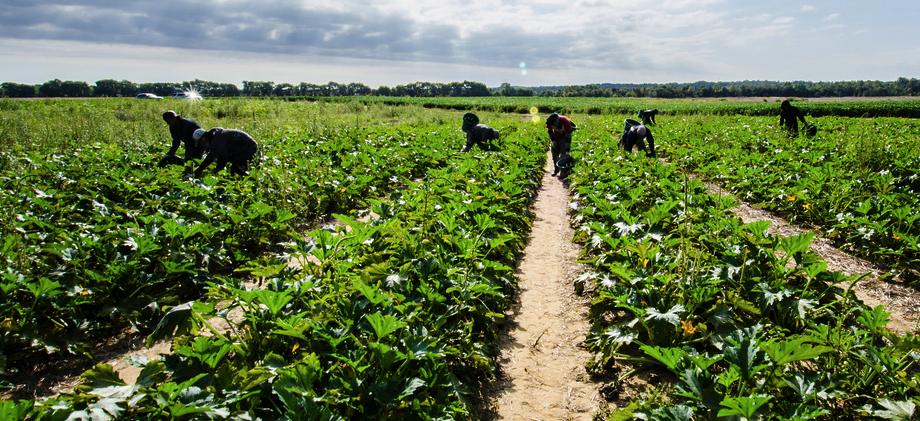Knives, Forks, and Farmers Favor Immigration Reform
Posted on February 21, 2019

When Internal Revenue Service (IRS) workers returned to their jobs Jan. 28 after the recent, 35-day government shutdown, an estimated five million pieces of unopened mail awaited.
Equally daunting, the shutdown coincided with the IRS’s hiring of its annual army of temporary workers to process the impending tax season’s mail. The delay now leaves the IRS months behind in what most Americans see as the agency’s most important job: sending out their tax refunds.
This is just one of the unforeseen messes—there are hundreds more—confronting government departments powering up after the partial federal shutdown that cost the U.S. economy an estimated $11 billion and resolved exactly nothing.
Worse, the U.S.-Mexico “wall” fight between the White House and Congressional Democrats still remains as another threatened shutdown looms Feb. 15.
No matter how this fight ends, no solution currently under discussion addresses the most pressing immigration problem facing American farmers and eaters: the growing unmet need for immigrant labor to deliver much of the abundant, cheap food this nation enjoys.
In fact, the growing labor shortage in California, the nation’s premier food-producing state, is so severe that 55 percent of its farmers told the state’s Farm Bureau affiliate in a 2017 poll that they experienced a “severe labor shortage,” USA Today recently reported.
(The story was published, ironically, two days after the White House agreed to a ceasefire in its wall battle.)
The poll also showed that another 33 percent of California farmers “were delaying harvesting, eliminating crops and neglecting critical tasks such as pruning” because they simply couldn’t find people to do the work.
More shocking, the poll also revealed that the government’s often-reformed H2A agricultural (guest) worker program is a bust; only four percent of farmers used it to hire legal immigrant labor.
The labor shortage is leading farmers to change in ways that aren’t good for rural California and the nation. For example, many are leaving crops to rot or allowing land to lay idle. The cutbacks cost consumers and pinch local economies.
Another solution, notes USA Today, is even more stark. “The most blunt of agriculture veterans simply say that their futures may involve… operating solely out of Mexico-based operations or possibly shuttering their businesses altogether.”
How crazy is that? Without a reliable, legal migrant workforce steadily moving north, U.S. farming operations could be steadily moving south.
The person holding the key to unlock this dilemma, President Donald J. Trump, has often told farmers he will help. “You need these people,” he recently told delegates to the American Farm Bureau Federation (AFBF) convention in New Orleans. “We’re going to make it easier.”
The Trump White House, in fact, has made it much harder for even legal and asylum-seeking immigrants to enter the U.S. Still, its actions don’t mean today’s much-tinkered with immigration system is workable. If anything, it points to the need for a dramatic overhaul.
According to the USA Today report, two California lawmakers, Sen. Dianne Feinstein and Rep. Zoe Lofgren, both Democrats, have a plan called The Agricultural Worker Program Act. It would “grant ‘blue card’ status to immigrants who have worked in agriculture for at least 100 days over the past two years.”
The sticking point, however, may be that the blue card, “a reward for being an engine in the economy,” could lead to a residency permit “within a few years.” As such, few GOP politicians, and no one in the White House, will touch it.
That vacuum offers farmers and ranchers the opportunity to lead on immigration. They have, after all, both the need and the President’s ear.
But do they, including Big Ag’s most Trump-favored farm group, the AFBF, have the guts to help broker an overhaul of the nation’s immigration system so that it ensures both justice to the immigrants and a steady flow of high quality, reasonably-priced food to the nation?
It’s a bold move now in need of bold leaders.
© 2019 ag comm
Share This